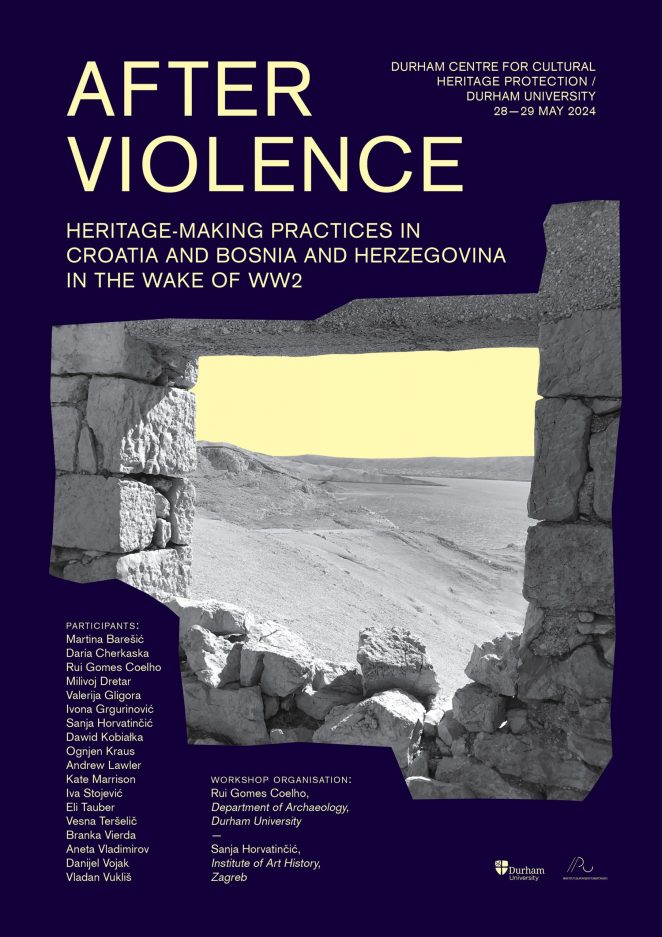After Violence: Heritage-making practices in Croatia and Bosnia and Herzegovina in the wake of WW2

Durham University
28-29 May 2024
In the last years, the public memory of WW2, the Holocaust and other genocides has been challenged by political extremist groups as well as collective indifference. This process is materialized in the destruction of monuments and sites of remembrance, the presence of genocide deniers in mainstream media, the lack of funding for museums and other cultural institutions, and the removal of information about WW2 atrocities from educational programs. Contemporary national and political divisions, as well as economic difficulties, have negatively affected the collaboration of stakeholders and experts towards common goals. This two-day event responds to growing concerns about the prevention of violence and war in Europe by involving grassroots organizations and stakeholders in broader discussions on human rights across Europe. The event aims to generate an international network of stakeholders and discuss community-based initiatives of international significance.
The network includes stakeholders from Croatia and Bosnia and Herzegovina whose relatives, communities, and municipalities were affected by the genocidal practices of the Ustaše-led Independent State of Croatia during WW2. The network also includes heritage professionals and policymakers currently conducting research on this topic or collaborating with stakeholders in commemoration programs and in the development of educational projects.
At Durham University, members of the network will convene to discuss a common agenda concerned with the relationship between cultural heritage and the prevention of structural violence.
Organization:
Rui Gomes Coelho, Department of Archaeology, Durham University
Sanja Horvatinčić, Institute of Art History, Zagreb
Support: The meeting is organized through the Durham University Grant Seedcorn Fund, and realized in partnership with the research project DIGitART.Dragi Jurice,









